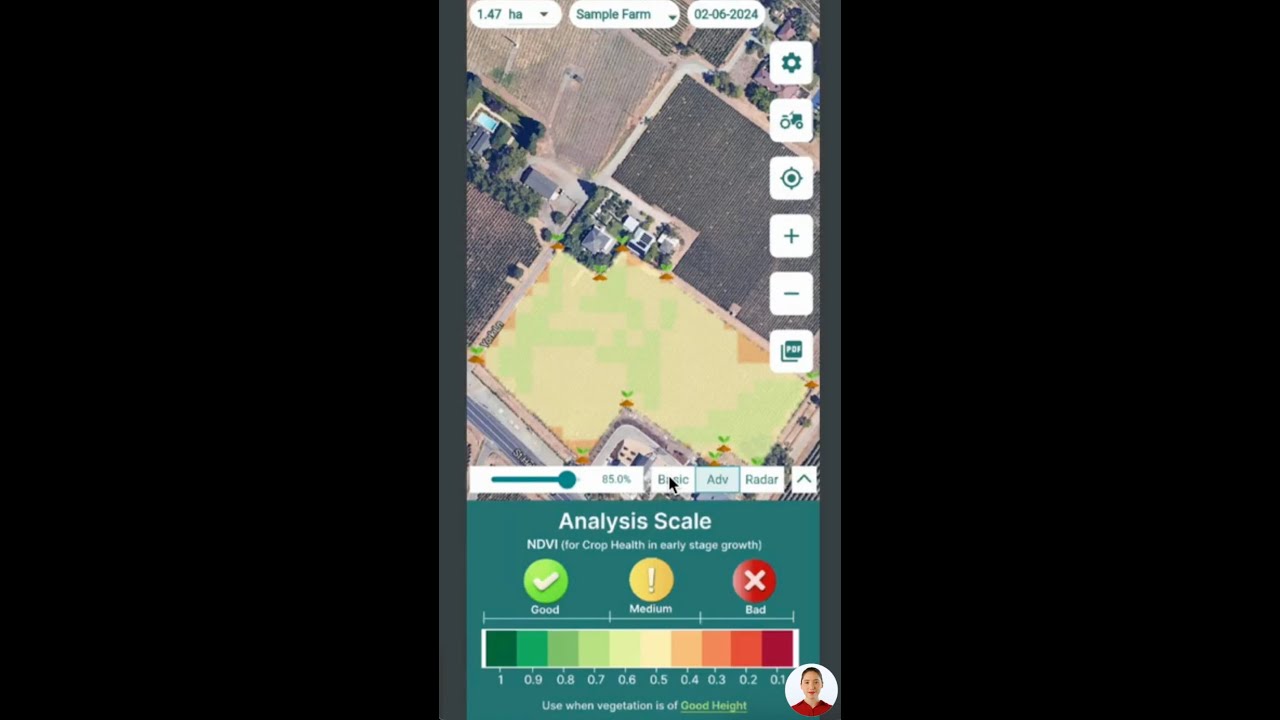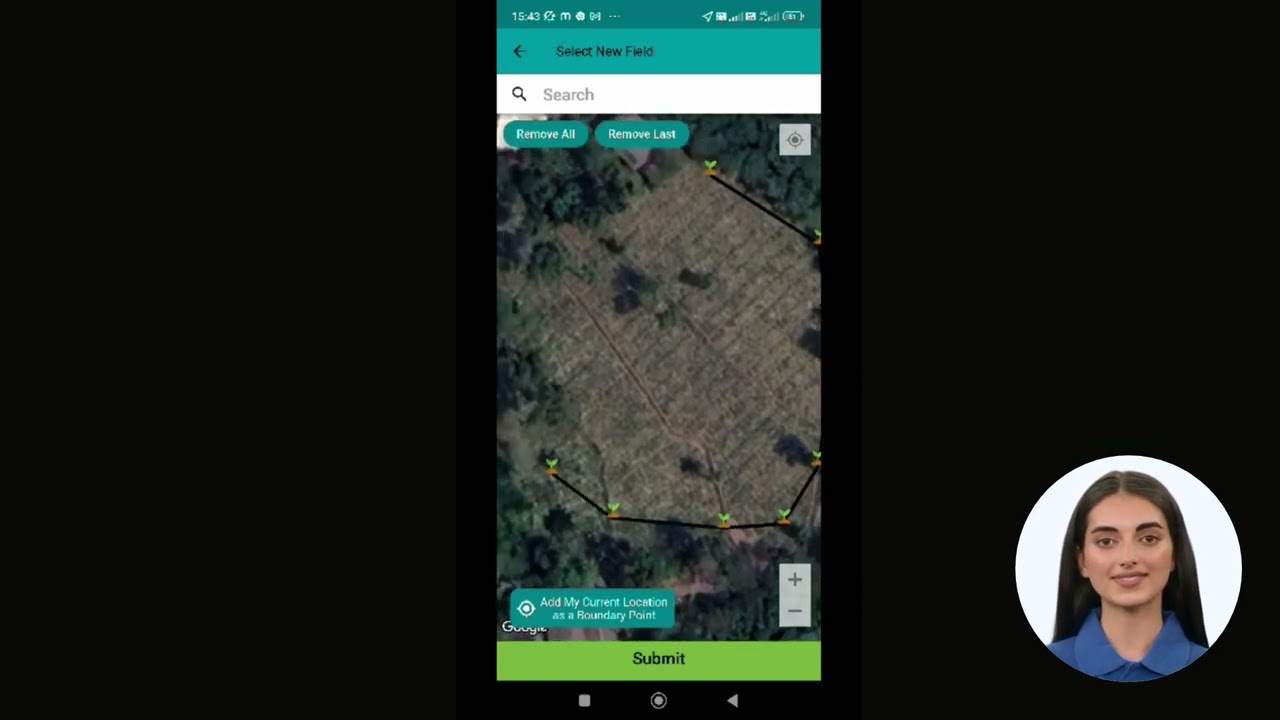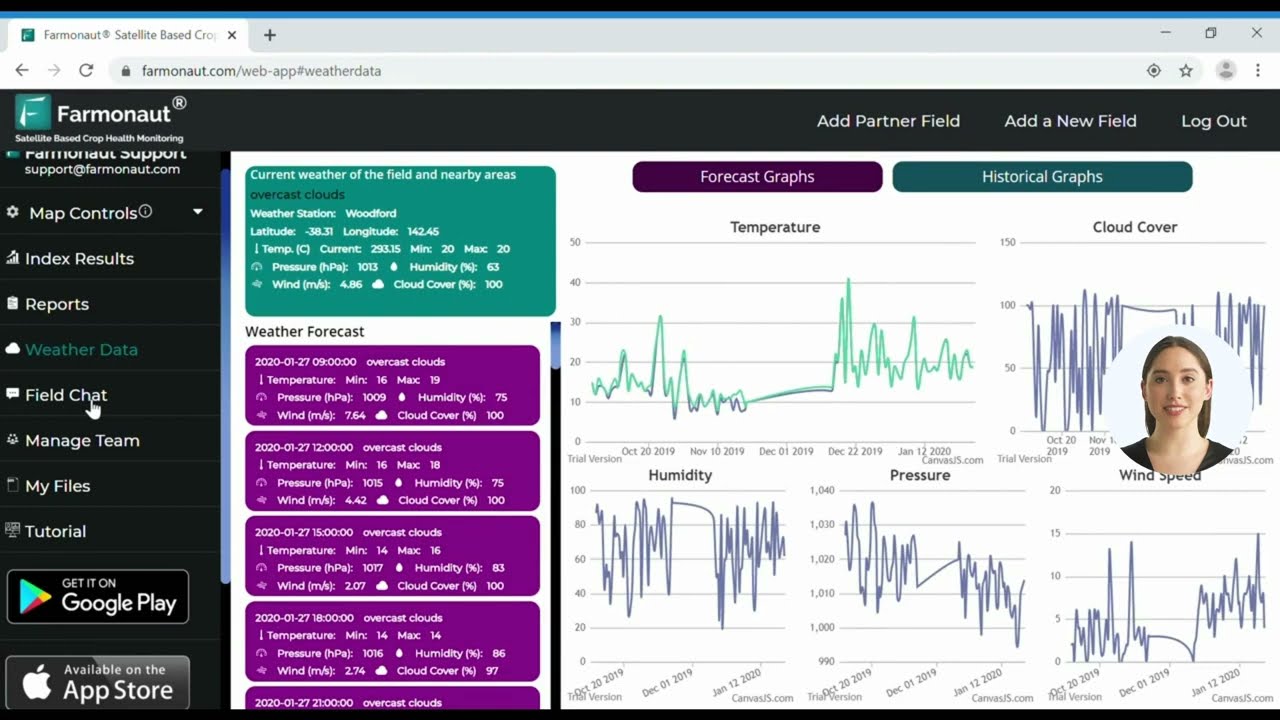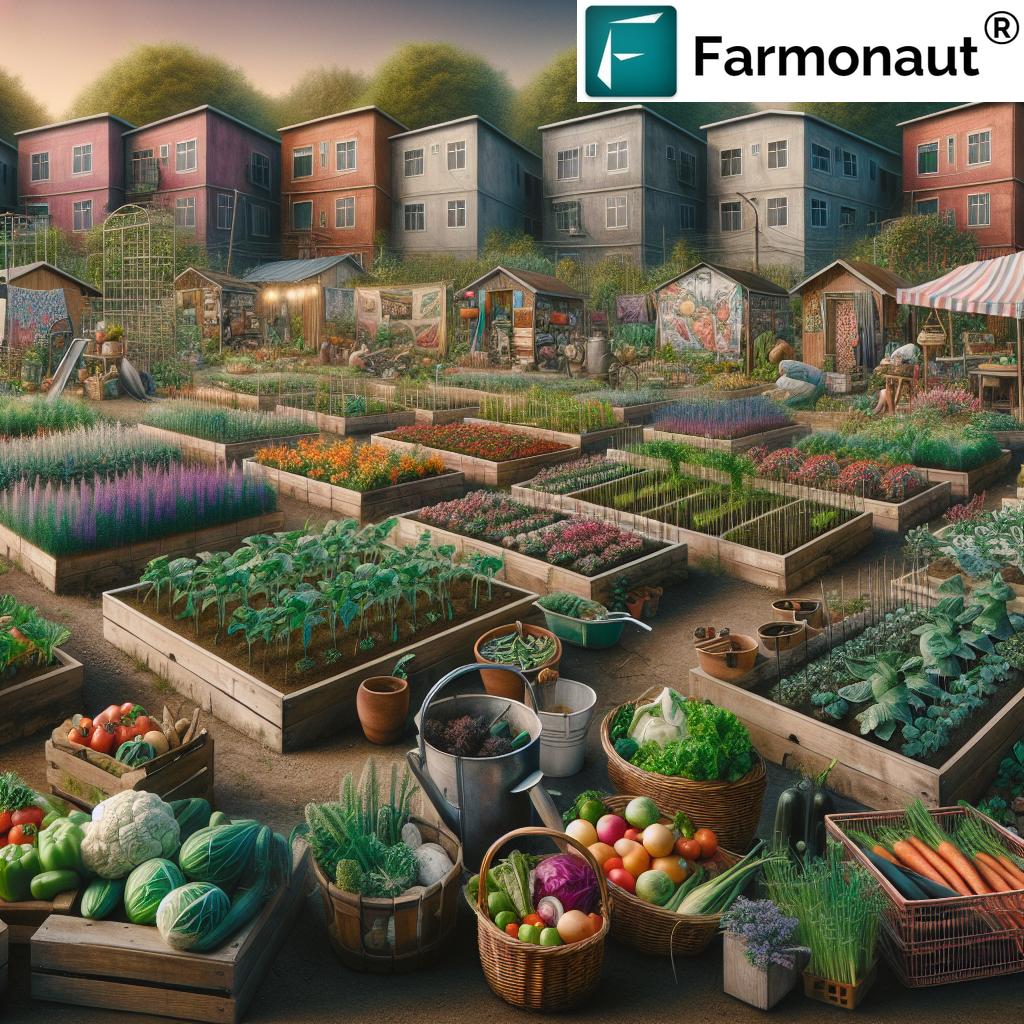Essential June Gardening Guide: Mastering Watering Techniques and Pest Control in Lancaster, PA
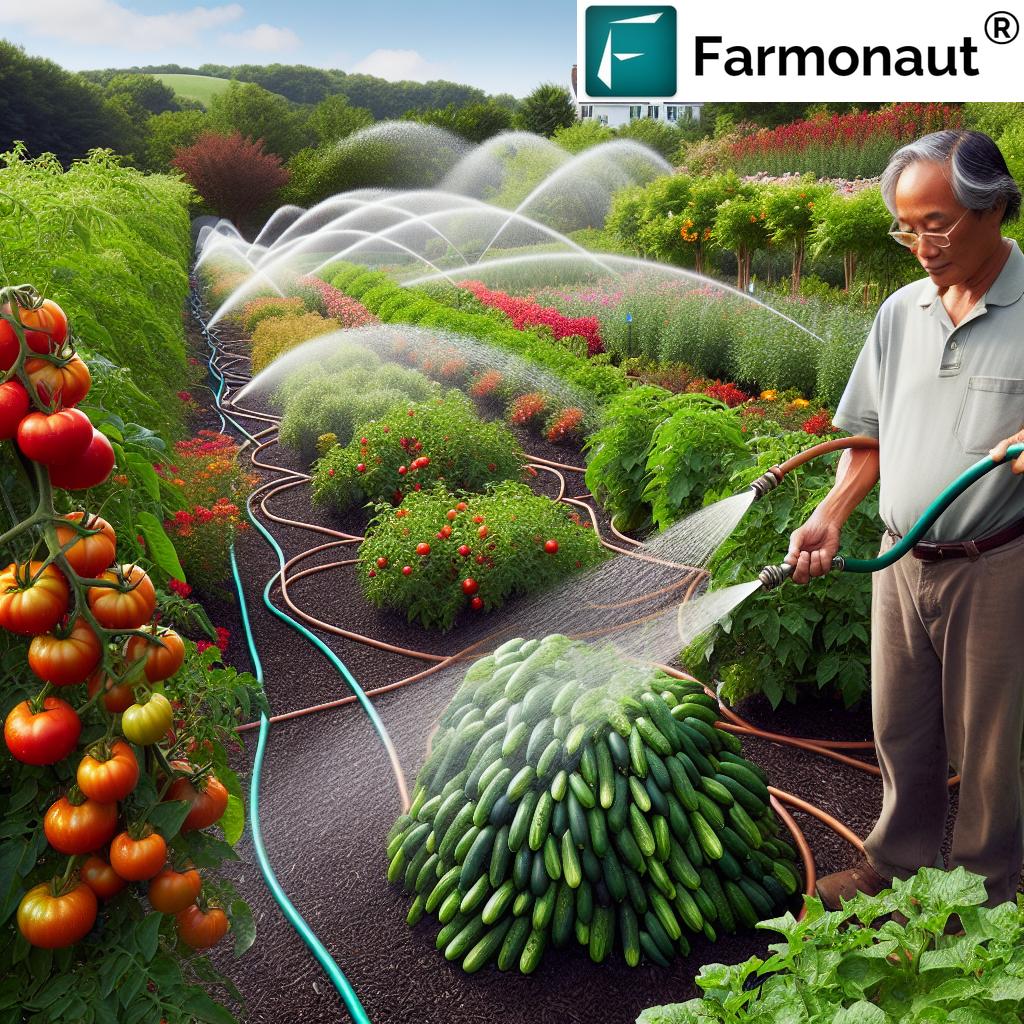
“In Lancaster, PA, June gardening often requires watering 2-3 times per week for newly planted specimens.”
Welcome to our comprehensive June gardening guide, focusing on essential summer gardening tasks in Lancaster, PA. As the season heats up, we at Farmonaut are here to help you master two crucial aspects of garden care: efficient watering techniques and effective pest control. Whether you’re tending to a small backyard plot or managing extensive field crops, this guide will equip you with the knowledge to keep your garden thriving throughout the warm summer months.
The Importance of Proper Watering in June
As temperatures rise in Lancaster, PA, proper watering becomes paramount for the health of your garden. June often brings increased heat and sporadic rainfall, making it essential to develop a consistent and effective watering routine. Let’s dive into some key watering techniques for different types of plants and garden setups.
Watering Newly Planted Specimens
- Water deeply and frequently, typically 2-3 times per week
- Focus on root zone watering to encourage deep root growth
- Use a soaker hose or drip irrigation for efficient water delivery
Newly planted trees, shrubs, and perennials require extra attention during their first summer. These plants haven’t yet established extensive root systems, making them more vulnerable to drought stress. We recommend watering deeply and more frequently than established plants, typically 2-3 times per week, depending on rainfall and temperatures.
Irrigating Established Perennials
- Water less frequently but more deeply than new plants
- Aim for 1-2 inches of water per week, including rainfall
- Water early in the morning to reduce evaporation
Established perennials, with their deeper root systems, require less frequent watering but benefit from deeper irrigation. The goal is to encourage roots to grow deeper into the soil, increasing their resilience to drought. Water early in the morning to reduce evaporation and allow leaves to dry before nightfall, which helps prevent fungal diseases.
Explore Farmonaut’s satellite-based crop health monitoring for efficient water management: 
Container Garden Hydration
- Check soil moisture daily, especially during hot spells
- Water thoroughly until excess drains from the bottom
- Consider self-watering containers for consistent moisture
Container gardens require special attention in June. The limited soil volume in pots means they dry out faster than in-ground plants. Check the soil moisture daily by inserting your finger about an inch into the soil. If it feels dry, it’s time to water. Water thoroughly until you see excess draining from the bottom of the container, ensuring the entire root ball is moistened.
Efficient Garden Irrigation Methods
Implementing efficient irrigation methods not only conserves water but also promotes healthier plant growth. Here are some techniques to consider:
- Drip Irrigation: This system delivers water directly to plant roots, minimizing evaporation and reducing water waste.
- Soaker Hoses: These porous hoses allow water to seep out slowly, providing deep, targeted watering for rows of plants or garden beds.
- Mulching: Apply a 2-3 inch layer of organic mulch around plants to retain soil moisture and reduce evaporation.
- Rain Barrels: Collect rainwater for use during dry spells, an eco-friendly and cost-effective solution.
Harness the power of satellite technology for precise irrigation planning: 
Vigilant Pest Control in Lancaster Gardens
“Organic pest control methods can reduce garden pest populations by up to 85% without harmful chemicals.”
As the summer heat intensifies in Lancaster, PA, so does pest activity in our gardens. June is a critical time for implementing effective pest control strategies to protect your fruits, vegetables, and flowers. Let’s explore some natural pest management techniques that align with organic gardening principles.
Common Summer Pests in Lancaster
- Japanese Beetles
- Aphids
- Tomato Hornworms
- Cucumber Beetles
- Squash Bugs
These pests can cause significant damage to your garden if left unchecked. Identifying them early and implementing preventive measures is key to protecting your plants.
Natural Pest Management Strategies
- Companion Planting: Intersperse pest-repelling plants like marigolds, nasturtiums, and herbs throughout your garden.
- Handpicking: Regularly inspect plants and manually remove larger pests like Japanese beetles and tomato hornworms.
- Beneficial Insects: Encourage natural predators like ladybugs and lacewings by planting diverse flowers and avoiding broad-spectrum pesticides.
- Neem Oil: This organic pesticide effectively controls a wide range of pests while being safe for beneficial insects when used correctly.
- Diatomaceous Earth: Sprinkle this natural powder around plants to deter crawling insects.
Monitor your crop health and detect pest issues early with Farmonaut’s satellite imagery: 
Organic Vegetable Gardening Tips for June
June is a prime time for vegetable gardens in Lancaster, PA. Here are some organic gardening tips to help you maximize your summer harvest:
- Succession Planting: Continue sowing quick-maturing crops like lettuce, radishes, and bush beans every 2-3 weeks for a continuous harvest.
- Support Structures: Install trellises or cages for climbing plants like tomatoes, cucumbers, and pole beans.
- Mulching: Apply organic mulch around vegetables to retain moisture, suppress weeds, and regulate soil temperature.
- Pruning: Remove suckers from tomato plants to promote better air circulation and fruit production.
- Fertilizing: Apply organic compost or well-rotted manure around plants to provide essential nutrients.
Summer Crop Planting Guide for Lancaster, PA
June offers an excellent opportunity to plant various summer crops. Here’s a guide to what you can plant this month:
- Vegetables: Tomatoes, peppers, eggplants, cucumbers, squash, melons
- Herbs: Basil, cilantro, dill, parsley
- Flowers: Zinnias, marigolds, sunflowers, cosmos
When planting, consider companion planting techniques to maximize space and deter pests naturally. For example, plant basil near tomatoes to improve flavor and repel pests.
Caring for Perennials and Annual Flowers
June is a crucial month for maintaining both perennials and annuals in your Lancaster garden:
Perennial Maintenance
- Deadhead spent blooms to encourage continuous flowering
- Stake tall perennials to prevent wind damage
- Divide overcrowded spring-blooming perennials
Annual Flower Care
- Pinch back growth tips to promote bushier plants
- Regularly fertilize with a balanced, water-soluble fertilizer
- Remove faded flowers to extend the blooming period
Optimize your garden care with Farmonaut’s AI-powered advisory system: Farmonaut API
Houseplant Care in Summer
Don’t forget about your indoor green friends during the summer months. Here are some tips for summer houseplant care:
- Watering: Increase watering frequency as plants tend to dry out faster in summer.
- Humidity: Mist tropical plants or use pebble trays to increase humidity.
- Light: Protect plants from intense direct sunlight, which can scorch leaves.
- Fertilizing: Feed houseplants regularly during their active growing season.
- Pruning: Remove any yellow or damaged leaves to maintain plant health.
Soil Health and Fertilization
Maintaining healthy soil is fundamental to a thriving garden. In June, focus on these soil health practices:
- Soil Testing: Conduct a soil test to determine nutrient levels and pH.
- Composting: Continue adding organic matter to your compost pile and apply finished compost to garden beds.
- Cover Cropping: Plant cover crops in fallow areas to improve soil structure and fertility.
- Organic Fertilizers: Apply slow-release organic fertilizers to provide steady nutrition throughout the growing season.
Leverage Farmonaut’s soil moisture monitoring for optimal fertilization timing: API Developer Docs
June Gardening Essentials: Watering and Pest Control Techniques
| Gardening Task | Recommended Technique | Benefits |
|---|---|---|
| Watering newly planted specimens | Deep watering 2-3 times per week | Encourages deep root growth and establishment |
| Irrigating established perennials | 1-2 inches of water per week, including rainfall | Promotes drought resistance and healthy growth |
| Container garden hydration | Daily moisture checks, thorough watering | Prevents drought stress in limited soil volumes |
| Natural pest management for vegetables | Companion planting, handpicking, beneficial insects | Reduces pest damage without harmful chemicals |
| Houseplant care in summer | Increased watering, humidity management | Maintains plant health during active growth period |
Lancaster, PA Field Crop Considerations
For those managing larger agricultural operations in Lancaster County, June is a critical month for field crops:
- Corn: Monitor for pest pressure and consider side-dressing with nitrogen if needed.
- Soybeans: Scout for early-season pests and implement weed control measures.
- Wheat: Prepare for harvest and plan for post-harvest field management.
- Hemp: For those growing industrial hemp, June is typically planting time in PA.
Optimize your field crop management with Farmonaut’s satellite-based monitoring: 
Embracing Sustainable Practices
As we tend to our gardens and farms this June, it’s important to keep sustainability in mind. Here are some eco-friendly practices to incorporate:
- Water Conservation: Use rain barrels and drip irrigation to reduce water waste.
- Integrated Pest Management (IPM): Adopt a holistic approach to pest control that minimizes chemical use.
- Native Plants: Incorporate native species that are adapted to local conditions and support pollinators.
- Crop Rotation: Plan for crop rotation to improve soil health and reduce pest and disease pressure.
By implementing these practices, we can create healthier, more resilient gardens and agricultural systems in Lancaster, PA.
Conclusion
As we navigate through June in Lancaster, PA, remember that successful gardening is about observation, adaptation, and consistent care. By mastering watering techniques, implementing effective pest control, and embracing sustainable practices, you’ll be well on your way to a bountiful and beautiful garden this summer.
Whether you’re tending to a small backyard plot or managing extensive field crops, the principles of good garden care remain the same. Stay vigilant, be responsive to your plants’ needs, and don’t hesitate to seek advice when challenges arise.
Happy gardening, and may your June be filled with the joys of nurturing your green space!
FAQ Section
Q: How often should I water my vegetable garden in June?
A: In Lancaster, PA, vegetable gardens typically need about 1-1.5 inches of water per week, either from rainfall or irrigation. During hot, dry spells, you may need to water 2-3 times per week. Always check soil moisture before watering.
Q: What are some natural ways to control Japanese beetles?
A: Natural control methods for Japanese beetles include handpicking, using pheromone traps away from your garden, planting resistant species, and encouraging natural predators like birds. Neem oil can also be effective when applied regularly.
Q: Is it too late to plant tomatoes in June in Lancaster?
A: It’s not too late to plant tomatoes in June in Lancaster. In fact, June is an excellent time for planting heat-loving crops like tomatoes. Choose varieties with shorter maturation times for the best results.
Q: How can I prevent my container plants from drying out so quickly?
A: To prevent rapid drying in container plants, use larger pots, add water-retaining materials like coconut coir to your potting mix, mulch the soil surface, and consider self-watering containers. Grouping containers together can also help maintain humidity.
Q: What should I do if my perennials are getting too tall and floppy?
A: For tall, floppy perennials, staking is the best solution. Use bamboo stakes or metal supports to prop up the plants. In the future, you can prevent this by pinching back growth in early spring to encourage bushier growth.


